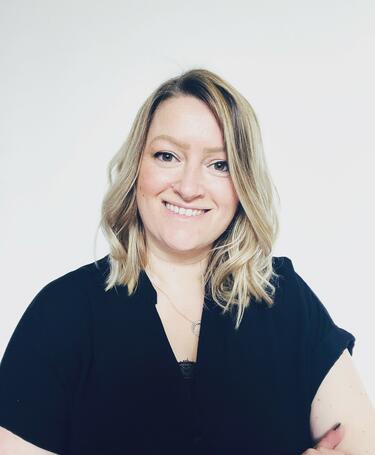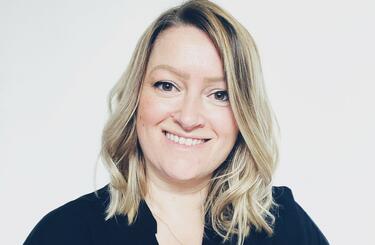
Supporting vulnerable consumers

The Inclusive Service Kitemark has been launched by BSI to assist vulnerable consumers. We speak to Natasha Bambridge, Global Consumer Promise Practice Director at BSI, about how the Kitemark will help protect and support consumers.
The impact of the Covid-19 pandemic, coupled with the cost-of-living crisis, has led to an increased number of people now classed as vulnerable, requiring a higher level of support as consumers.
To assist in supporting vulnerable people, BSI has launched the Inclusive Service Kitemark, initially with organisations in the energy, water and financial sectors to demonstrate their commitment to helping vulnerable customers.
“Vulnerability can affect any of us at any time and the pool of people who are vulnerable is ever increasing. Last year, the FCA completed a study that showed the number of people who are vulnerable had increased by 15% – so 27.7m people identified themselves as having one or more characteristics of vulnerability,” says Natasha Bambridge, Global Consumer Promise Practice Director at BSI.
We are going beyond what the regulators are asking for to support these organisations to push what they are doing – delivering an exceptional service to consumers who are vulnerable.
“That is a truly shocking stat. Making sure that we can protect those people and deliver a service that enables them to access services is incredibly important and will just become more so over the next few years.”
The term ‘vulnerability’ can be applied to people in a wide range of situations, covering visible disabilities as well as mental health issues and specific life events.
“Those are the things more commonly associated with vulnerability, but it could also be something like a significant life event that has impacted how you might be able to understand and interact with services. For example, something like divorce, bereavement or financial concerns, that could impact you over the shorter term,” Bambridge says.
“Vulnerability is something that can affect any of us at any time. You might not even think of yourself as being vulnerable but, because of something that is happening in your life, you are actually considered vulnerable in that situation.”
Energy, water and finance
The first areas that can achieve certification to the Inclusive Service Kitemark include sectors that are to the fore during the current cost-of-living crisis, notably the energy sector, and water and finance.
“We focused on those sectors first because they are essential services. We felt that if we launched the Kitemark in those sectors, it would have a greater impact. That is something that BSI wants to do as a whole over society – how can we support organisations to have the greatest impact on consumers’ lives? – so we focused on those areas,” says Bambridge.
“They are also areas that are regulated, by Ofgem, Ofwat and the FCA, which has really driven up improvement in the past few years on how organisations in those sectors are managing their vulnerable consumers. We felt that we could build on that, testing some of those regulatory requirements as well.”
“The Inclusive Service Kitemark framework is voluntary and is based on BS ISO 22458:2022 Consumer vulnerability – Requirements and guidance for the design and delivery of inclusive service. An organisation would implement the standard internally, along with additional requirements. We have worked with stakeholders to enhance the scheme and make it relevant to the sector, so achieving certification to the Kitemark provides assurance that an organisation’s services are fair and flexible for all.
“We are still seeing fines issued and instances of poor practice in some of those spaces. Some of the cases you see from the regulators are things like, say, in the finance sector, someone saying ‘I’m having problems paying this bill, I’ve got cancer, and I’m having problems’, and that a frontline member of staff is not managing that appropriately. If that repeatedly happens then the fines for organisations can run into millions.
“We have reviewed the requirements of regulators in each of those sectors, who are already doing a really great job. We’ve built on those requirements so that, where regulators are asking for additions to the standard, ISO 22458, we’ve included them as items by which we will be measuring the organisation.
“For example, water suppliers need to ask their customers if they would like a trusted friend or carer on their account who could be an emergency contact for them, helping out if there was a crisis; that could include them receiving notifications on missed payments or access to billing information. The reason we have included this is to give organisations reassurance that they are being independently assessed by a third party and are meeting regulatory requirements in addition to what the standard requires.
“We are going beyond what the regulators are asking for to support these organisations to push what they are doing – delivering an exceptional service to consumers who are vulnerable.”
Benefits of certification
The benefits of achieving certification to the Inclusive Service Kitemark is clear for consumers and organisations.
“For me, the biggest benefit is increasing accessibility and reducing harm to customers,” Bambridge says. “If your services are provided in a way where more people can interact with them and get a better service, you’re going to have fewer complaints and potentially increase your customer base because more people can interact with your services. From a social point of view, your brand is doing the right thing by customers.
“From an internal perspective, your shareholders are going to be keen to know that you are doing the right thing. Also, many employees now want to work for organisations with purpose – those that are doing the right thing in society.”
The Inclusive Service Kitemark was launched in April and BSI is initially working with up to 15 clients – five in each of the three sectors – with the aim of the 15 achieving their first certification by January 2023.
“One thing that I have seen during this process is a huge desire for these organisations to support each other and share best practice, and becoming vulnerability champions in this space,” says Bambridge. “They absolutely are competitors but, for the greater good, they are supporting and advising each other.”
CQI CEO, Vince Desmond, looks at recent quality failures to explore the growing relevance of this year’s World Quality Week theme, ‘Quality conscience: Doing the right thing’.